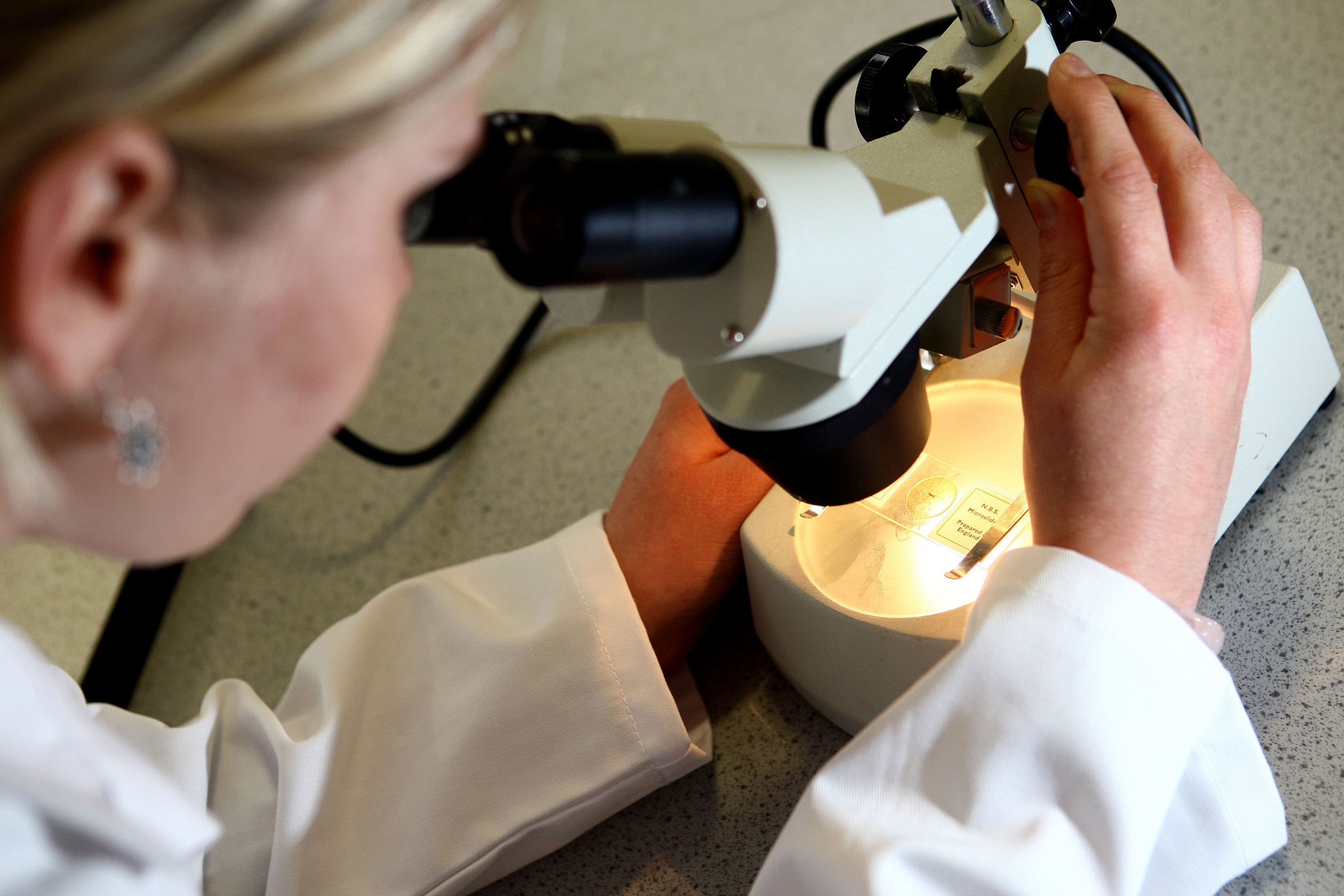Scientists target ‘first stop’ of prostate cancer spread
Researchers hope their work could lead to the development of new treatments that prevent the spread of the disease.

A group of scientists are to embark on research they hope will lead to the development of new ways to treat and cure men with prostate cancer.
Professor Hing Leung and his multidisciplinary team at the University of Glasgow and Beatson Institute will study how and why prostate cancer cells move beyond the prostate to the lymph nodes so they can work out how to stop this from happening.
The team has been awarded around £1.5 million from Prostate Cancer UK to carry out the research, which they believe could unlock the potential to develop tailored treatments for men with tumours which could delay or even stop their cancer spreading.
Researchers will analyse prostate and lymph node samples donated by men who have had them removed, then study the different types of cells and molecules inside them to discover how they interact and how this allows cancer to move through the body.
Using computer programs that can learn and find patterns, the team also hopes to discover new features in cancer cells that can predict how well men will respond to treatment.
This will be key to future treatments which delay or even prevent the spread of prostate cancer for men
Prostate cancer is the most common form of cancer in men and currently one in three of those with the disease are diagnosed too late to be cured, according to Prostate Cancer UK.
Prof Leung said: “When a man’s prostate cancer is contained to his prostate, it’s much easier for doctors to successfully treat him. However when the cancer spreads, it becomes much more dangerous, more unpredictable, and a cure is much less likely.
“Lymph nodes are often the ‘first stop’ for tumours that progress beyond the prostate and further around the body, so we are working out how cancers make this first journey – and then discovering how to disrupt it. This will be key to future treatments which delay or even prevent the spread of prostate cancer for men.”
Dr Matthew Hobbs, director of research at Prostate Cancer UK, said: “A man living with prostate cancer has the best chance of living well and living longer if we can understand more about how the disease is behaving, so he gets the most effective treatments that are tailored to the characteristics, behaviour, and biology of his particular cancer.
“That’s why we fund exciting, innovative projects like this, thanks to the generous donations of our supporters.
“Cutting-edge research is needed most urgently in Scotland, where one in three men with prostate cancer get their diagnosis when the disease has already spread and it’s too late for a cure.
“I’m delighted to add Professor Leung’s new grant to our portfolio, taking Prostate Cancer UK’s total investment in current research projects in Scotland to over £3 million.”
Bookmark popover
Removed from bookmarks